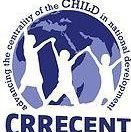
CHILD RESEARCH AND RESOURCE CENTRE (CRRECENT)
CHILD RESEARCH AND RESOURCE CENTRE (CRRECENT)
Call Now

CHILD RESEARCH AND RESOURCE CENTRE (CRRECENT)
Call Now
Girls Leadership and Participation in Governance

Girls of Aburi Girls Secondary School engaged in group discussions on the role and involvement of on young women in leadership
What we do
Girls and young women are the most affected by poverty across the world especially those in rural and urban rural communities. From the moment they are born, girls face cultural, educational and employment inequalities and injustice in their lives.
Girls and women experience physical and psychological violence in the form of sexual abuse, beatings, insults and early forced marriage. We know that helping girls again access to school, stay in school and progress to the highest level in the key to changing lives for good, not that of girls alone but that of families. An educated girl is more likely to grow up to be a healthy, empowered woman who can make her own choices, earn her own income, and protect and educate her own children.
Getting girls into school and to stay in school
Millions of girls around the world are still being denied an education.
Primary School: There are still 31 million girls of primary school age out of school. Of these 17 million are expected never to enter school. There are 4 million fewer boys than girls out of school. Three countries have over a million girls not in school: In Nigeria there are almost five and a half million, Pakistan, over three million, and in Ethiopia, over one million girls out of school.
Lower Secondary School: • There are also 34 million female adolescents out of school, missing out on the chance to learn vital skills for work.
Skills: • Slow education progress for children today will have lifelong effects: Almost a quarter of young women aged 15-24 today (116 million) in developing countries have never completed primary school and so lack skills for work. Young women make up 58% of those not completing primary school.
Literacy: • Two-thirds of the 774 million illiterate people in the world are female.
Source: 2012 EFA Global Monitoring Report; UNESCO Institute for Statistics database.
Reasons why girls don’t go to school, or have to drop out:
Together with communities we create Child Protection Committees to develop School Perfor-mance and Improvement Plans (SPIP) and implement development activities that will im-prove the school environment and make it safer for girls. So we work with communities to promote education for girls, help parents afford the costs and toilet facilities, and run girls’ clubs and mentoring projects to support them through school.
Helping young teenage mothers earn a living
Dropping out school because of poverty and teenage pregnancy, many young women do not have the skills they need to earn an income. If they find some work, they’re paid less than men for the same number of hours, have no workers’ rights and often have to wait for days for their wages.
We offer women training in the skills they need to survive – such as soap and powder mak-ing, bread and pastries baking, business management, or sustainable farming techniques. This is so that they can earn a living, feed themselves and pay for their children’s education.
Ending violence against young women and girls
Girls and young women will experience some form of physical or sexual violence in their lifetime. Many young women and girls living in poverty in rural communities are threatened with violence every day: at home or at school.
In deprived communities, violence against young women and girls is often considered acceptable, and offenders aren’t punished. This means there is often nowhere that women and girls can truly feel safe or get help. In one situation where we were into negotiation with traditional leaders to commence girls and young women empowerment programme, we were confronted by this interpretation; “This men and women say they have come here to give power to young women and girls so that when they are disciplined by their husbands and they can fight back.” The lot of young women and girls in rural and rural urban communities live in suppression and fear.
We’re helping young women and girls to tackle violence and stand up for their rights. We implementing projects and offering services and demand justice for survivors of violence, and support programmes to empower young women and girls. We work with a Network of Help-lines which provides assistance to young women and girls whose rights abused and suffer violence.
Gender & Empowerment
CRRECENT pursues projects to empower vulnerable young women in rural communities economically and psycho-socially through the provision of vocational skills training, counseling and micro credit. This project is part of our girl child empowerment programme for creating conditions for self-employment for mothers, especially teenage mothers (single parents) to increase their family income to reduce family poverty and increase chances for the girl child to progress from basic school to Senior Secondary School and the University. The Programme is part of the girl child empowerment for leadership and reintegration package for the released juveniles from Correctional Centres and Remand Homes in Ghana.